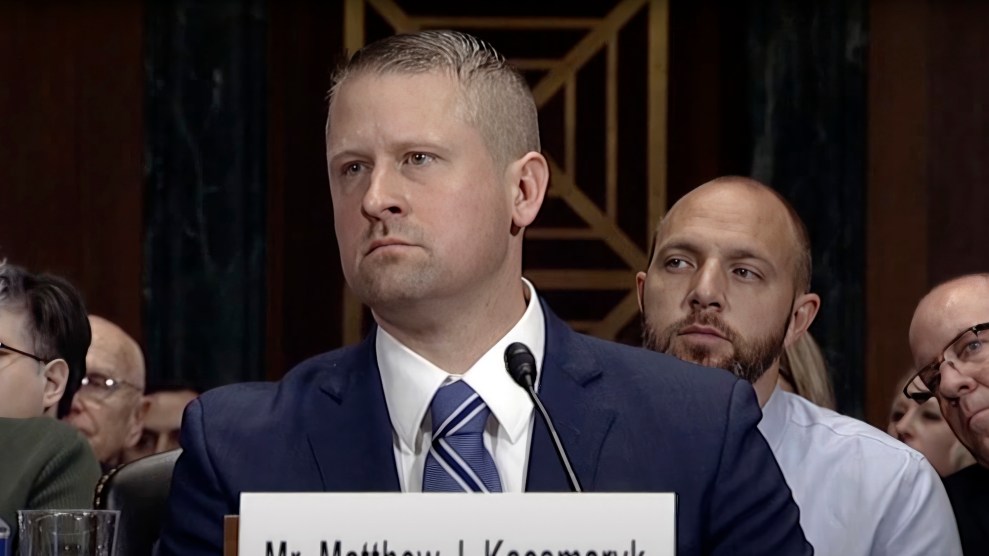
Matthew Kacsmaryk listens during his confirmation hearing before the Senate Judiciary Committee in 2017.Senate Judiciary Committee/AP
In 2017, Matthew Kacsmaryk, then deputy general counsel at the right-wing First Liberty Institute, criticized protections for transgender people and those seeking abortions in a draft law review article. The Obama administration, he wrote, was ignoring doctors who, for religious reasons, “cannot use their scalpels to make female what God created male” and “cannot use their pens to prescribe or dispense abortifacient drugs designed to kill unborn children.”
What’s unusual is what happened next. The Washington Post reports that Kacsmaryk, now the federal judge issued who issued the temporarily-stayed decision to ban the abortion drug mifepristone across the country, asked an editor at the law journal a few months later to remove his name from the article because of “reasons I may discuss at a later date.” Instead, he asked the journal to put the names of two of his colleagues on the article. At the time, Kacsmaryk was being considered for a judgeship. As the Post explains:
As part of that process, he was required to list all of his published work on a questionnaire submitted to the Senate Judiciary Committee, including “books, articles, reports, letters to the editor, editorial pieces, or other published material you have written or edited.”
The article, titled “The Jurisprudence of the Body,” was published in September 2017 by the Texas Review of Law and Politics, a right-leaning journal that Kacsmaryk had led as a law student at the University of Texas. But Kacsmaryk’s role in the article was not disclosed, nor did he list the article on the paperwork he submitted to the Senate in advance of confirmation hearings in which Kacsmaryk’s past statements on LGBT issues became a point of contention.
Kacsmaryk did not respond to requests for comment from the Post. A spokesman for First Liberty told the paper that Kacsmaryk’s name was “placeholder” on the article and that the now-judge did not make a “substantive contribution.” But a former editor at the journal said there was no sign that Kacsmaryk was being used as a “placeholder.” He had never seen the name of an author changed out before, according to the Post.
Adam Charnes, who worked on judicial appointments during the George W. Bush administration, called Kacsmaryk’s decision not to disclose the article to the Senate “problematic” and “a little shady.” Alex Aronson, the former chief counsel to Sen. Sheldon Whitehouse (D-R.I.), said it raised questions about the judge’s “candor and honesty.”
Kacsmaryk now serves in the Northern District of Texas, where he is the only judge in Amarillo. As a result, any suit filed in Amarillo automatically goes to him. That has made it easy for conservative lawyers to ensure that they get cases assigned to an unusually sympathetic judge.
Like other federal judges, Kacsmaryk enjoys a lifetime appointment. At 46, he may be on the bench for decades to come.
Read the full story from the Washington Post here.










